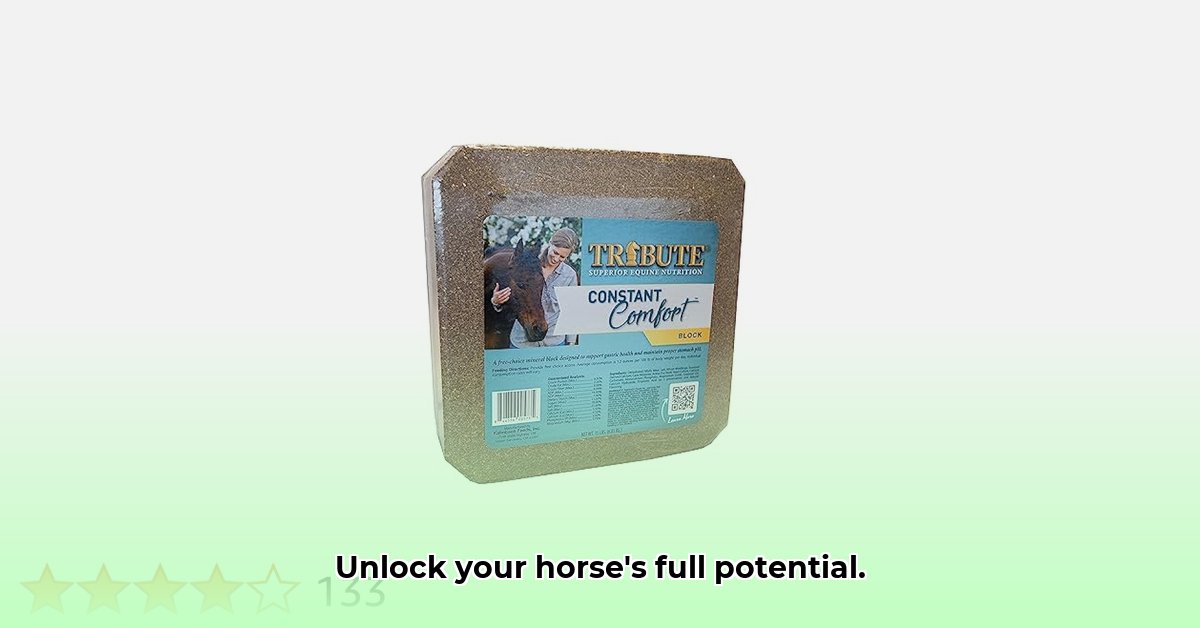
Understanding Your Horse's Mineral Needs: Beyond the Basics
Maintaining peak equine health requires a holistic approach, and proper nutrition is paramount. While a balanced diet of hay and grain forms the foundation, often overlooked are essential minerals – the vital building blocks for strong bones, a healthy coat, and robust overall health. A deficiency in even one key mineral, such as calcium, phosphorus, magnesium, or zinc, can significantly impact your horse's well-being, potentially leading to decreased performance and even serious health issues. Do you know if your horse is receiving the complete spectrum of minerals it needs to thrive? Learn more about choosing the right mineral supplement by checking out this helpful guide.
Tractor Supply Mineral Blocks: A Convenient Nutritional Solution
Tractor Supply offers a convenient and effective way to ensure your horse receives the necessary mineral supplementation: mineral blocks. These aren't just simple salt licks; they're carefully formulated to provide a consistent and controlled release of essential minerals, allowing your horse to self-regulate its intake throughout the day. This method minimizes waste compared to loose supplements, ensuring optimal utilization of resources. Think of it as a 24/7 mineral buffet, readily available whenever your horse needs it.
Choosing the Right Mineral Block: A Tailored Approach
Selecting the appropriate mineral block for your horse is crucial and hinges on several key factors. A one-size-fits-all approach is rarely effective.
Assess Your Horse's Needs: Consider your horse's age, breed, activity level, and existing diet. A young, growing horse will have different mineral requirements than an older, retired animal. Similarly, a horse in heavy training will need a different formulation of minerals than a horse in light work.
Study the Ingredient List: Carefully examine the label of potential mineral blocks. Ensure the product contains a balanced blend of essential minerals in appropriate quantities. Look for blocks from reputable brands with third-party testing and analysis verifications.
Specialized Blocks for Specific Needs: Tractor Supply offers a selection of mineral blocks catering to particular equine needs, including supplements for pregnant mares or high-performing athletes. If your horse has unique nutritional requirements, a specialized block may be advantageous.
Palatability Matters: Horses, like people, are selective eaters. Choose a brand known for its palatable formulation and observe your horse's consumption habits after introducing the block. Are they actively eating the block? If not, you'll need to consider alternatives.
Safe and Strategic Placement: Position the mineral block in a clean, dry location, accessible to your horse but shielded from the weather and contamination. A muddy mineral block isn't just unappealing; it also poses a health risk.
Integrating Mineral Blocks into Your Horse's Care: A Step-by-Step Guide
Successfully implementing mineral block supplementation into your horse's routine involves a methodical approach:
Consult Your Veterinarian: Before starting any new supplementation, consult your veterinarian. They can assess your horse's individual health needs and provide tailored guidance based on the results of any physical examinations and health assessments. This step is critical for an effective approach. "A veterinarian’s personalized assessment is paramount before introducing any new supplement to your equine," advises Dr. Emily Carter, DVM, Equine Specialist at the University of Kentucky.
Thorough Label Review: Carefully review the product label, paying close attention to directions, recommended feeding amounts, and any potential precautions. Understanding the product's specifications is vital for safe and responsible usage.
Strategic Block Placement: Place the block in a clean, dry area, readily accessible to your horse, yet protected from potential weather damage or contamination. Accessibility is key.
Monitor Consumption: Keep a keen eye on your horse’s mineral block consumption. Does your horse readily consume the supplement? If consumption remains consistently low, consider adjusting the location, block type, or palatability enhancer.
Observe and Adjust: Regularly monitor your horse's health and overall condition after introducing the mineral block. Look for improvements; if anything seems amiss, contact your veterinarian immediately.
Weighing the Pros and Cons: A Balanced Perspective
Mineral blocks offer numerous benefits: convenience, ease of use, and a slow-release mechanism that minimizes waste. However, it's crucial to acknowledge potential drawbacks. "While mineral blocks offer a convenient supplementation method, precise mineral intake control is unattainable," notes Dr. Michael Davies, PhD, Equine Nutritionist at Cornell University. It is critical also to note that mineral blocks are not a cure-all for nutritional deficiencies. The supplement should only be used to top up a base diet and should not be considered the main source of nutrition for your horse.
Sustainable Practices: Beyond Mineral Supplementation
While mineral blocks offer a valuable tool, sustainable equine management considers the broader picture. Regular pasture management, including soil testing to understand mineral content, remains crucial for optimal equine nutrition. This practice informs targeted supplementation, minimizing environmental impact and maximizing resource utilization. A holistic approach that integrates sensible pasture management and informed mineral supplementation leads to a healthier environment and happier, healthier horses.